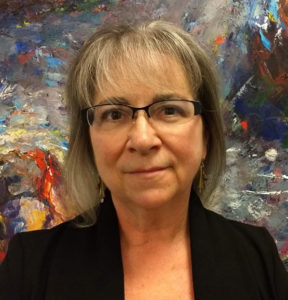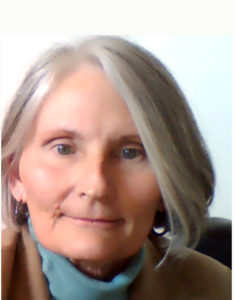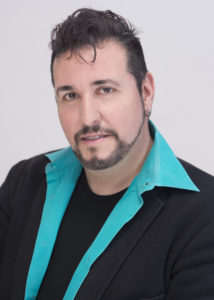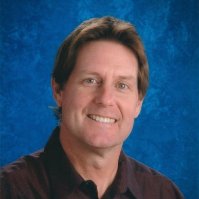
Mary Earick
January 6, 2022
Four professors at New Mexico Highlands University have published recent research articles in national education journals assessing a variety of strategies needed to implement culturally sustaining classroom instruction.
In 2018, findings from the Yazzie/Martinez v. State of New Mexico lawsuit determined that public education in the state was lacking the funding and quality programming needed to support all students. Mary E. Earick, Dean of the School of Education at New Mexico Highlands University, said her research and the research of her colleagues seeks to address the gaps in education identified by Yazzie/Martinez.
“The research that the School of Education is engaged in right now is so critically important, because as a collective, we are dedicated to the question of what educational equity looks like in our public schools,” said Earick. “Systemic change towards educational equity is possible when we come together and align our research, teaching and service towards that goal.”
Earick’s most recent research, “Linguistic policies for African American language speakers: Moving from anti-Blackness to pro-Blackness,” was published with lead-author Gloria Swindler Boutte and co-author Tambra O. Jackson in the Journal Theory into Practice.
“We’re looking at linguistic policies nationally for African American Language (AAL) speakers, and how they need to change to move towards pro-Blackness (honoring Black culture).” said Earick. “For example, funding from the Every Student Succeeds Act supports English Language Learners but does not recognize the distinct linguistic features of African American Language so these AAL speakers do not benefit from this funding. This lack of recognition by the U.S. Department of Education diverts substantive funding nationally from use by African American Language speakers.”
Earick explained that the lack of recognition of African American Language is a part of an anti-Black discourse that is prevalent within education. She and her colleagues are advocating for pro-Blackness in the classroom which includes the recognition of the African American Language and accompanying funding and resources.
Earick said she and her colleagues’ research is particularly timely given that New Mexico just passed the Black Education Act. The Act was passed in January of 2021 and requires schools to support Black students through culturally responsive curriculum and instruction.
“With the recent passing of the Black Education Act, New Mexico is ahead of the curve in the country in really thinking through how to support all students,” said Earick. “The opportunities that have been afforded African American students in the school system here as well as nationally are insufficient. And in order to ensure that there’s educational equity when addressing Yazzie/Martinez versus the state of New Mexico, we want to expand equity discussions to include African American students, families, and communities in New Mexico.”
Earick shared that people who speak African American Language have often been viewed as having a learning deficit rather than possessing a rich and culturally significant language.
“Comprehensive adoption of pro-Black educational policies and practices in teacher preparation has not occurred, so we’re working towards having this move into teacher preparation in a systemic way,” said Earick. “What I think is really exciting is that New Mexico is ready to take this research and implement it. The passing of the Black Education Act in New Mexico is a needed step in comprehensively addressing Yazzie/Martinez versus the state of New Mexico, as well as a national model other states can adopt.”

Becky Kappus
Becky Kappus’s, interim director for the School of Education Alternative Teacher Certification Program, research also looks at ways to support the diversity of identities in the classroom. With co-authors Leanna Lucero, Cory J. Cascalheira, and Ellen E. Ijebor, Kappus’s recent article “Invisible Stories: A Phenomenological Study of Bi and Trans Parent Experiences within Elementary Schools in the Southwestern United States,” was published in the Journal of Homosexuality.
Kappus said her research focuses on LGBTQ+ representation in the classroom, with a particular focus in this article on students who identify as bi or trans.
“Many times, students who don’t have heteronormative families do not see themselves in the curriculum,” said Kappus. “We all have biases, and teachers bring their biases into the classroom. As teachers, we try really hard to be as fair and equitable as possible, but those hidden biases come out in the way we talk and the way we say things.”
Kappus said there are simple ways for teachers to be inclusive, such as the types of families represented in posters on the wall, in reading materials, and in the language they use in the classroom.
“I still see teachers dividing kids up by boys and girls, and that can be problematic for somebody who doesn’t identify as either a boy or a girl,” said Kappus. “We have to make sure this research helps those teachers understand that they need to stop and think about it.”
Kappus points to books like Tango Makes Three as being good examples of materials teachers can use to de-stigmatize LGBTQ+ families.
“The families I spoke with had been to the point where they thought that they had to almost hide who they were, because of the way others made them feel,” said Kappus. “And these were adults. So that was very eye opening that this is a problem that’s not being addressed.”
Ultimately, Kappus hopes that the research will make teachers more aware of the issues and supportive of students’ identities.
“It’s about letting a student identify the way he or she or they want to identify, and not making them feel uncomfortable about who they are,” said Kappus. “They need to be able to see themselves and feel valued in the classroom.”

PJ Sedillo
In his research, associate professor of special education PJ Sedillo likewise examines the gaps in culturally responsive teaching to LGBTQ+ students. Also, a researcher of gifted education, Sedillo is especially interested in identifying best teaching practices for gifted LGBTQ students. Among his many current and forthcoming publications, he has recently published a chapter in the book Culturally Responsive Teaching in Gifted Education, “Culturally Responsive ABC’s for Gifted LGBTTIQQ2SA+ Students.”
“I used all of the letters, specifically, because we’re talking about being culturally responsive and we have all of these individuals together that can at least go under the same tent,” said Sedillo.
Sedillo said he’s working to develop Sedillo’s GLBT+ Identity Stages, which are the stages of identity that individuals go through when they are both gifted and questioning or becoming aware of their sexual orientation or gender identity.
“The stages of identity are going to change the face of gifted education because it’s new and unique,” said Sedillo.
According to Sedillo, there are many problems with gifted education that need to be addressed in New Mexico, but he said despite often coming last in everything, New Mexico currently ranks 23rd in the nation for the quality of gifted education.
And although he said the one shortcoming of the Yazzie/Martinez findings is that it did not address meeting the needs of gifted students, Sedillo also believes Yazzie/Martinez will transform and change the education system.
“Every year, I’ve worked with New Mexico Association for the Gifted,” said Sedillo. “We’ve tried to introduce legislation for early entrance to kindergarten acceleration policies which would make a huge difference for gifted kids.”

Robert Karaba
Robert Karaba, associate professor and chair of the Educational Leadership program at New Mexico Highlands, said his research looks at the ways current U.S. culture inhibits democratic education. His most recent article, “Breaking Down the Gold Standard of Education,” was published in the Journal of Education and Social Policy.
“One of the things I really look at are the aims of education, and one of the main aims that Yong Zhao talks about as the gold standard of education is the PISA,” said Karaba, referring to the Program for International Student Assessment, a standardized test developed by the Organization for Economic Co-operation and Development, or OECD.
According to the OECD website, students in 79 countries take the PISA, including the United States. Karaba said that because the test is developed by an international economic organization, there’s a conception that countries where students perform well on the PISA do well economically. However, Karaba’s research shows no correlation.
“I’m really questioning the policies of American and international education in focusing education on increasing performance on standardized academic tests,” said Karaba.
Karaba said practical applications of his research would be policies to shift the focus from standardized testing to a greater emphasis in critical thinking.
“We’re after critical thinking, connectivity with other people and the environment, and engagement,” said Karaba. “Ecology of mind plays into part under the disposition of connectivity—also, this notion of intellectual humility, of not thinking you are always right; knowing that there are different perspectives out there.”
Karaba said his upcoming research will focus on how the concepts of freedom, culture, democracy, and education intertwine. He said neoliberal freedom is quite different from the kinds of freedom advocated by educational philosophers such as Paulo Friere and John Dewey.
“In our culture today, we have a predominant notion that freedom is individual freedom, and that any kind of social planning is infringing on that freedom,” said Karaba. “Whereas Dewey and Friere have a different view of freedom, not in the negative sense of freedom from something, but in the positive sense of freedom of having the power to do something.”
Earick said the faculty in the School of Education spend a lot of time and energy reflecting on how to best prepare culturally sustaining leaders, learners, and activists.
“If we really want to support and make changes towards educational equity in the public schools, what is our role as academics, as educators, and as service providers in making sure that occurs?” said Earick. “We do not want to move backwards into deficit models which have been fueled by high stakes testing and standards separated from culturally centered curriculum, which have is why we are here today with Yazzie/Martinez. These models need to change and NMHU faculty are working to make that change happen.”
Earick said faculty members in the School of Education at New Mexico Highlands University have been working hard to engage with leaders in the schools, educators, students, and families across New Mexico to promote a new model education grounded in culturally sustaining practices.
“This is our identity as a school of education,” said Earick. “It’s one dedicated to transforming education by understanding the reality of it, and then engaging in courageous conversations to address deep-seated problems of practice so that we can support students and families in culturally sustaining ways.”
